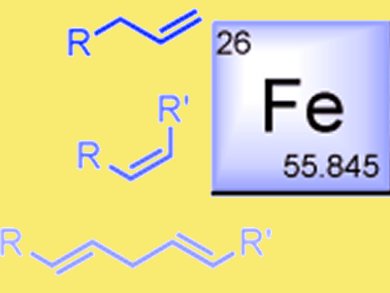Translocation of terminal olefins represents one strategy for repositioning this functional group within a molecule. Most methods for moving a terminal double bond require toxic or expensive transition metals, complex ligands, stoichiometric additives, or special reaction conditions.
Axel Jacobi von Wangelin and co-workers, University of Cologne, Germany, have reported the isomerization of allylbenzenes, 1-alkenes, isolated dienes, and (Z)-olefins with a cheap and non-toxic catalyst. Their optimized conditions, which used Fe(acac)3 as the catalyst and phenylmagnesium halide as the reductant, required only two hours at room temperature to give the rearranged product in quantitative yield. The isomerization of linear 1-alkenes was highly selective, giving only 2-alkenes unlike many conventional methods which result in a thermodynamic mixture of internal alkenes.
This is a practical, cheap, and general olefin isomerization protocol that could be used in many fine chemical or pharmaceutical syntheses.
- Iron-Catalyzed Isomerizations of Olefins
M. Mayer, A. Welther, A. Jacobi von Wangelin,
ChemCatChem 2011.
DOI: 10.1002/cctc.201100207




